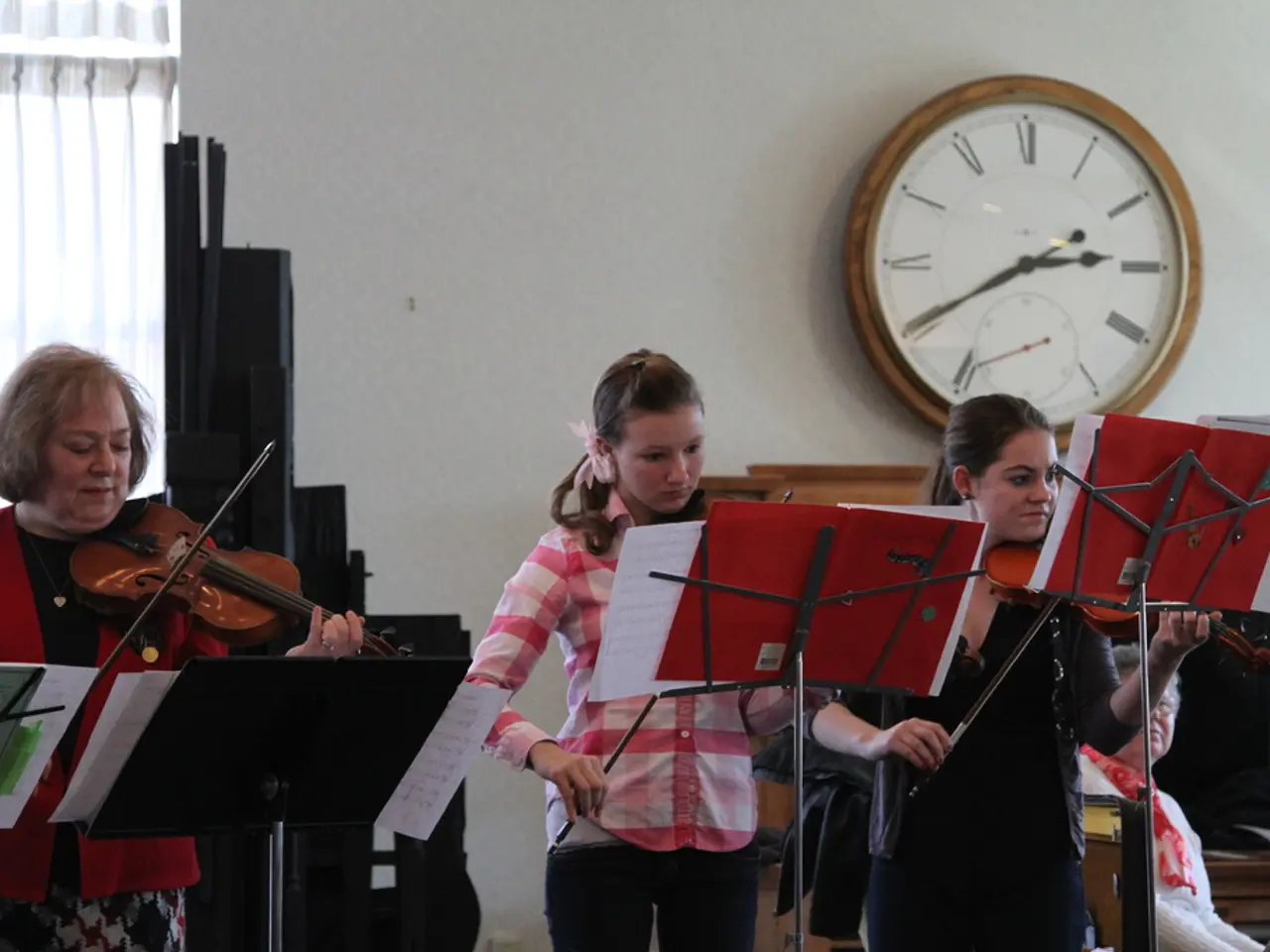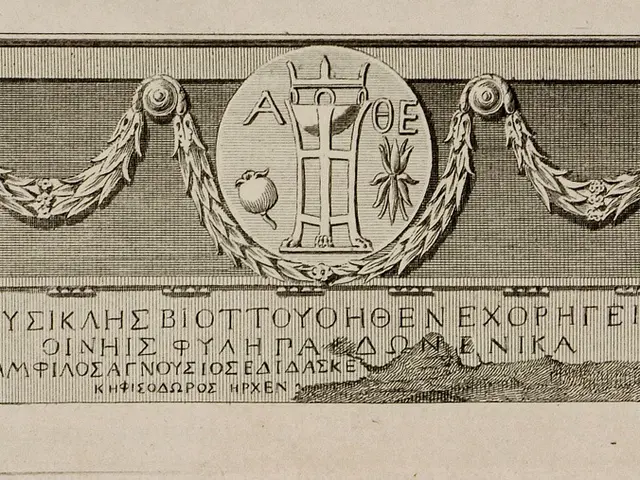Catchy Pop Music Revisited
In the latest episode of the popular podcast Takt und Taktlos, hosts Axel Brügemann and Hannah Schmidt delve into a series of thought-provoking discussions about the role and relevance of classical music in today's society.
One of the main topics of debate was the moral relevance of classical music. Brügemann argued that the genre, regardless of the critic's gender, should be evaluated based on its artistic merit, not on superficial or biased criticisms. Schmidt, on the other hand, found misogyny prevalent in the arts section and pointed out instances of sexist music criticism.
The discussion also touched upon the Opus Classic, a prize that both Brügemann and Schmidt had differing opinions on. Brügemann saw it as a prize for a dying industry, while Schmidt viewed it as a glimmer of hope, albeit with a hint of total arbitrariness.
The Tanzorchester Ehrenfeld was another subject of debate. Schmidt found the group's performance funny, while Brügemann took a more critical stance, viewing the affected dancing as less than compelling.
The podcast also delved into cultural policy, the role of change in classical music, and the genre's potential as a moral compass. Brügemann argued that classical music, through performances like the peace oratorio "The Armed Man – A Mass for Peace," can promote values such as peace, tolerance, and reconciliation, symbolizing hope and encouraging societal principles like understanding and courage for peace in times of danger.
Despite the serious nature of these discussions, there was no repetition of previous topics such as the relevance of classical music today, the role of change in classical music, sexist music criticism, or cultural policy.
Throughout the episode, Brügemann and Schmidt displayed their unique perspectives and engaging banter, with Brügemann sometimes behaving like an old man in the podcast studio and Schmidt feeling like an old woman at times.
The 2000s critic style was also discussed, with the hosts agreeing that it remains prevalent today. The podcast ended on a thought-provoking note, leaving listeners to ponder whether classical music still matters in today's world and whether it can serve as a moral compass.
Tune in to the latest episode of Takt und Taktlos for a lively and insightful debate on the future of classical music.








